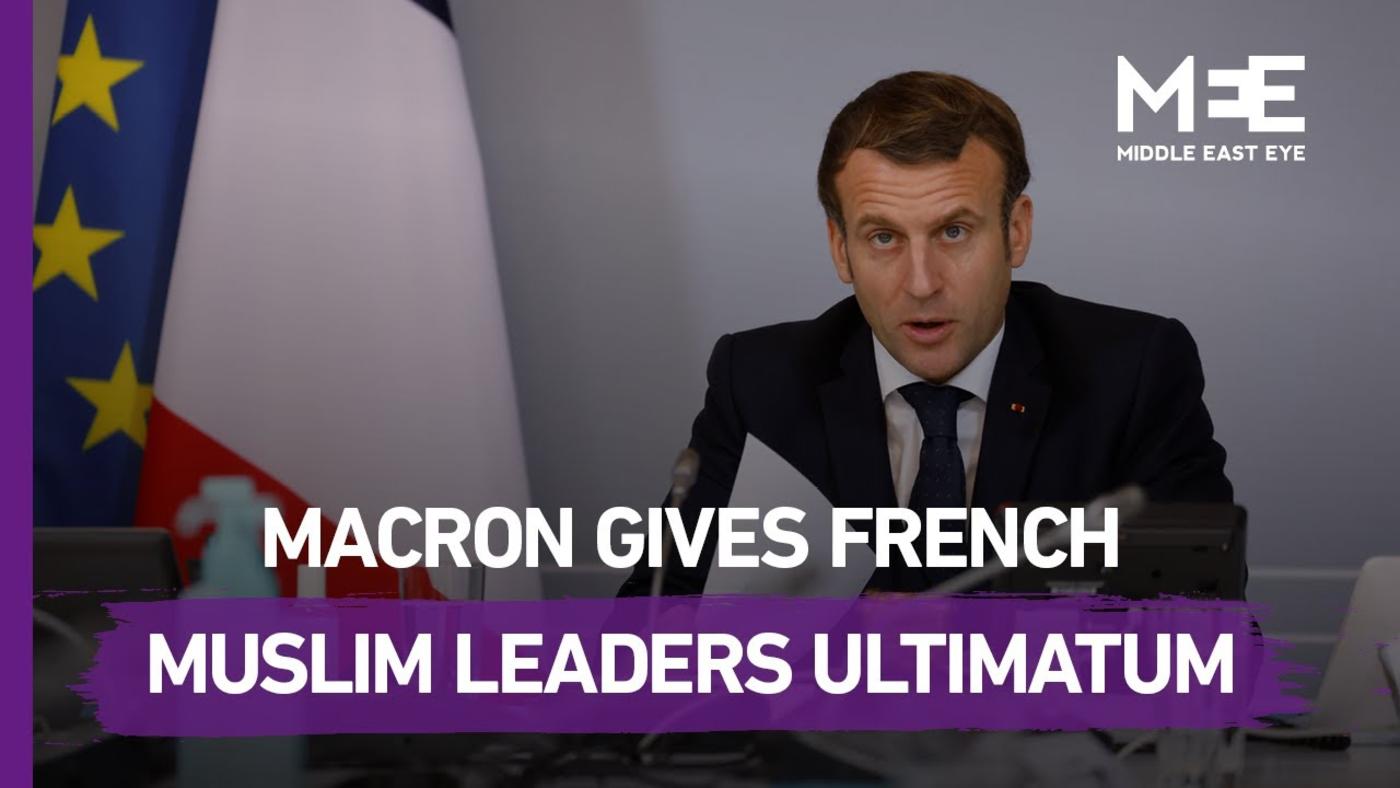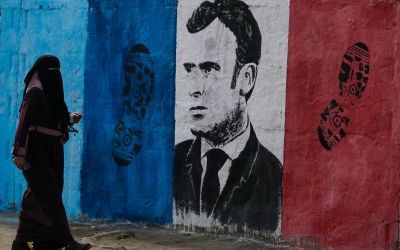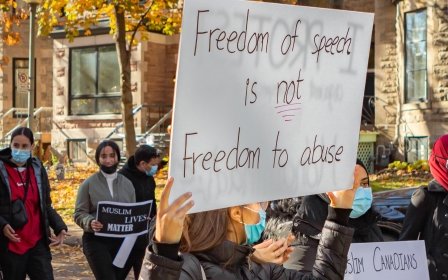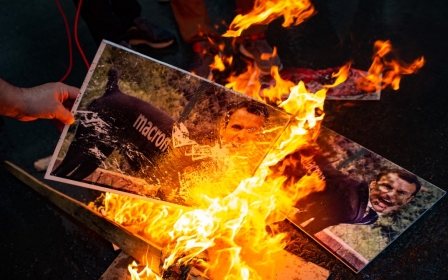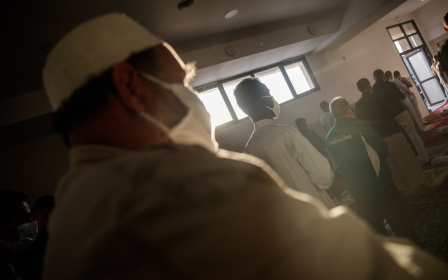'The French government has no right': CAIR slams Macron's 'ultimatum' to Muslims
The Council on American-Islamic Relations (CAIR) condemned French President Emmanuel Macron's "attempt to dictate the principles of the Islamic faith" to French Muslim leaders, and his demand they "falsely state that Islam is an 'apolitical religion'".
Macron on Wednesday gave the French Council of Muslim Worship (CFCM) two weeks to draw up a charter of "republican values" with which its member organisations and affiliates would be expected to comply, amid a row over Islam's place in the country.
Macron warned that "if some do not sign this charter, we will draw the consequences from that".
CAIR, the largest Muslim civil rights organisation in the United States, slammed the ultimatum on Thursday, declaring that "the French government has no right to tell Muslims or any other religious minority how to interpret their own faith".
The order also seeks to put an end to foreign involvement in French mosques, and establish a "National Council of Imams".
'Hypocritical and dangerous'
"President Macron must reverse course before his nation returns to the colonial racism and religious bigotry that haunted so many European nations for centuries. President Macron is turning 'Liberté, égalité, fraternité’ into ‘repression, inequality and division'," CAIR executive director Nihad Awad said, referring to the national motto of France.
Macron's order is a stated attempt to tackle "extremism", and he has said that the move is part of an effort to centralise the formation and accreditation of Muslim religious leaders in the country.
Still, CAIR denounced it as "hypocritical and dangerous", warning American Muslims against travelling to France.
The US-based organisation accused France of having a long history of oppressing its Muslim population.
"Over the past 20 years, France has implemented numerous laws designed to limit and punish the free exercise of religion, especially among Muslims. France has banned students, teachers, and public servants, from wearing visible signs of their faith, including hijabs, at school or at work," CAIR pointed out in its statement.
Macron's plans have been criticised by some from domestic Muslim communities, as well as by international organisations. His decree follows the killing of schoolteacher Samuel Paty, who was slain in October after showing his class a caricature of the Prophet Muhammad in a class on freedom of speech. Another attack in the city of Nice left three dead that same month.
Weeks earlier, the French president sparked controversy during a speech in which he called Islam "a religion in crisis" and vowed to crack down on alleged Muslim "separatism", resulting in international protests and a boycott of French products.
A draft law on "separatism" is expected to be presented to the French cabinet on 9 December.
Accrediting Muslim leaders?
Macron has also indicated that he wants about 300 imams from countries including Turkey, Morocco and Algeria currently working in France to leave the country within four years.
Unlike Catholicism or the Greek Orthodox Church, Islam does not have centralised leadership, which may complicate French efforts to consolidate training and accreditation of religious community leaders.
While the degree of qualifications expected from imams may vary from one country or area to another, in practice, sufficiently knowledgeable individuals can lead prayers and religious rites without formal training.
The planned National Council of Imams would reportedly require different levels of qualifications - including fluency in French and university degrees - depending on whether one leads prayers, gives sermons or engages in public speaking.
It remains unclear what consequences will face imams and organisations that do not abide by the future charter. However, AFP reported that, under the planned national council, imams would receive a type of accreditation card that could be granted or rescinded based on their adhesion to the charter.
Middle East Eye propose une couverture et une analyse indépendantes et incomparables du Moyen-Orient, de l’Afrique du Nord et d’autres régions du monde. Pour en savoir plus sur la reprise de ce contenu et les frais qui s’appliquent, veuillez remplir ce formulaire [en anglais]. Pour en savoir plus sur MEE, cliquez ici [en anglais].


